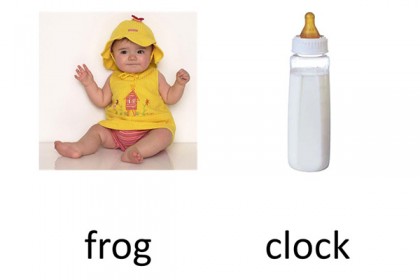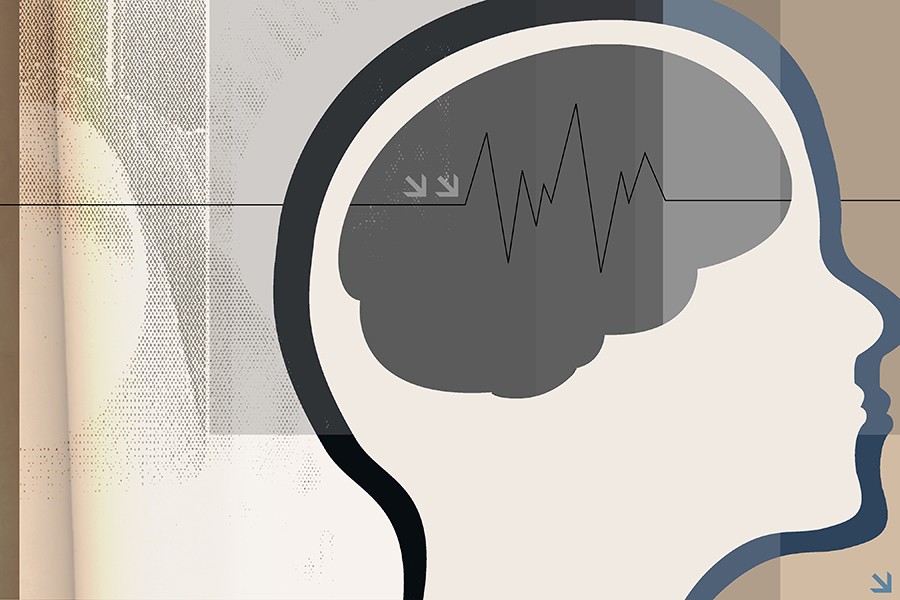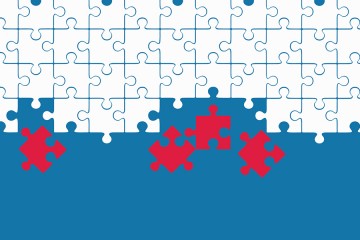Adults with autism may be able to compensate for some of the language challenges that mark the disorder in children, according to new research from Johns Hopkins.
The small study found that autistic adults are able to comprehend certain word tests equally well as adults without the disorder, yet using different strategies in the brain.
The findings were published recently in The Journal of Autism and Developmental Disorders.
In children with autism, previous studies have shown difficulty sorting between unrelated word pairs (like "clock" and "frog") and related pairs (like "baby and bottle")—which can complicate the way they process written or spoken language.
Moreover, researchers have believed that this language challenge is, in most cases, a lifelong struggle.

Image caption: An example from the study pairing pictures and words
Image credit: Emily Coderre
But the new research suggest that some adults with autism may overcome this challenge, developing "compensatory learning strategies that allow them to process language as well as people without autism," says Emily Coderre, a postdoctoral fellow in neurology at the Johns Hopkins School of Medicine.
The study looked at 20 adults with mild to moderate autism and "normal" verbal abilities, according to standardized tests, versus a control group of 20 participants without the disorder. All participants took a computerized word and picture test while researchers monitored their brain's electrical activity via electroencephalogram.
Researchers were looking for a spike in the EEG known as an N400 response. The N400 reflects the brain's ability to recognize when something is "off"—like two words or pictures that aren't related in a meaningful way, such as the "clock" and "frog" example.
This study found that, with related and unrelated pictures, adults with autism showed the same N400 spike as adults without autism. Interestingly, though—and contrary to earlier findings in children with autism—the study also saw the N400 spike in the word tests with autistic adults.
The autistic participants differed from the control group in when and where the N400 response started. For the autistic group, the spike started later and most strongly at the right side of the head.
The results suggest the two groups used different strategies to think about the meaning of the words, Coderre says.
"It appears that although the adults with autism in our study have brains that are 'wired' differently than those without autism, our findings strongly suggest this different wiring can still enable them to achieve good cognitive and language abilities, at least on this one measure," she says.
Researchers plan to repeat the experiment in children with mild to moderate autism to verify that the differences they saw in adults are due to learned responses.
A better understanding of these compensatory responses could help teachers and language programs build the strategies more quickly in autistic children, Coderre suggests.
"I hope our study sends a hopeful message to people with autism or their parents," she says.
Read more from School of Medicine









